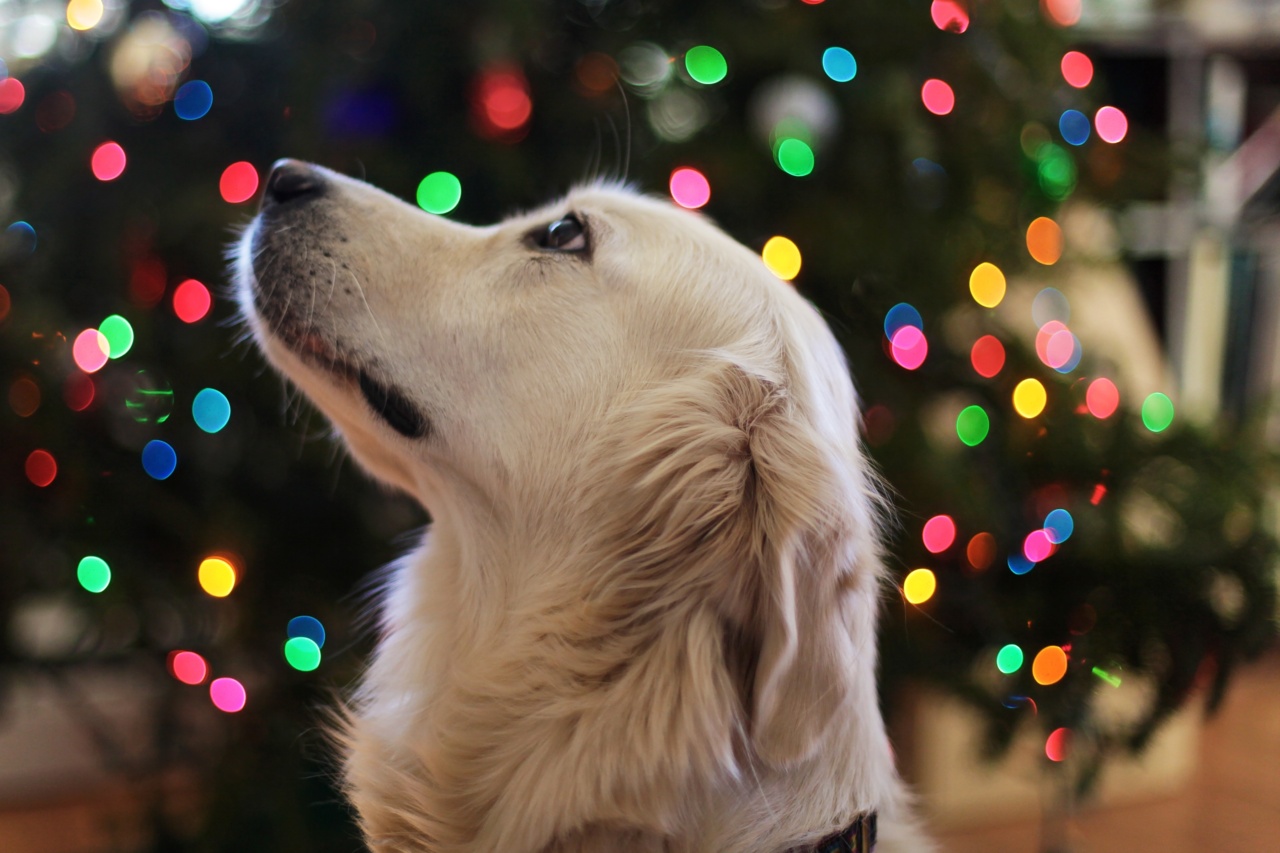Christmas is a time of joy and giving, but getting a dog as a gift may not be the best idea. Even though a dog can bring happiness, responsibility and commitment come with it. Here are 30 reasons why getting a dog for Christmas is a bad idea:.
1. Dogs are a Long-term Commitment
Dogs live many years, so getting a dog means making a long-term commitment. Dogs need daily care, love, and attention, which can last for over a decade. Ahead of adopting a dog, think carefully about your future and long-term plans.
2. Taking Care of a Dog is Expensive
A dog requires food, veterinary services, dog sitters, grooming, and more, and it can add up to thousands per year. It’s important to budget for these expenses and consider whether you can afford them before bringing a dog into your life.
3. Dogs Needs Successes Training
Dogs require training to learn how to behave properly around people and other animals. Training dogs takes time and can be stressful because of a dog’s personality varies from breed-to-bread.
Without proper training, a dog may become unruly or even dangerous.
4. Dogs Require Time
Dogs need time, attention, and care every day. You may not be able to participate in certain activities, such as long vacations, without taking the dog with you.
Since dogs enjoy and need interaction with their human family members, they often can’t be left alone for long periods.
5. Dogs Require Space
Dogs require their own space to relax and enjoy, and you may not have enough of it or the right kind of space for your dog to thrive. Small spaces are not ideal for larger dogs, while some breeds require a large amount of outdoor space to run and play.
6. You May Not Have Time for Training
If you or someone else in your family is busy with school or work, finding time to train a dog can be difficult.
Without proper training, a dog may develop bad habits and behaviors, which can result in more extensive training or potentially re-homing the dog.
7. Allergies
If anyone in your home has allergies it could be risky to own a dog. Some people are allergic to dog hair or dander, so it could induce allergic reactions and medical conditions such as asthma or hives.
8. Medical Conditions
Some people are medically unstable or have conditions that make it challenging to take care of a dog. For instance, if you have heart disease that makes it difficult to walk, you might not be able to take the dog outside for exercise.
In such a situation, dogs may be a challenge to take care of.
9. You May Need to Crate Train
Dogs typically need to be crate trained to learn how to be comfortable in confined areas when you’re away or traveling. This training requires time, effort, and patience, which is not always possible for everyone.
10. Dogs Are Not a Gift Item
The idea of bringing home an adorable puppy as a Christmas present may seem thoughtful and exciting, but dogs aren’t toys or objects that can be placed under the Christmas tree.
Adopting a dog should be a thoughtful decision made after careful consideration and not a spur of the moment decision made on a holiday.
11. The Holidays Can Be Stressful
The holidays are often a busy and chaotic time, with travel and family visits. Bringing a new dog into the mix can be stressful for both the dog and the family. A new environment and strangers may cause anxiety, fear, and aggressive behavior for the dog.
12. Gifting Responsibility
Dogs are not just gifts; they are living beings that require care, attention, and responsibility. Gifting a dog can give the impression that the dog is just an object and not a living thing that needs attention.
13. Dogs Need Stability
Training, routine, and love are some of the essential aspects of a dog’s life. You can’t give a dog stability by just giving it as a Christmas present.
Affection, patience, and time are essential in imparting stability to a dog, and that cannot happen on the same day you get a dog.
14. Dogs Get Older
Your dog will grow old, and with that, there are many health issues as well as behaviour changes that come with age. You need to make sure you are ready to handle such changes as a responsible owner.
15. Breed Specific Laws
Some breeds may be prohibited or restricted in a specific area or city. It is best practice to make sure the breed you want is permitted by your local laws before getting one as a dog Christmas present.
16. Family Issues
If there are conflicts within a family, it’s not an excellent time to get a dog. A dog should be a unifying force that is loved by everyone instead of causing more tension and anxiety.
17. Unexpected Expenses
Dogs can have unexpected medical issues, such as accidents, injuries, and illnesses, which can result in high veterinary bills. It’s important to prepare and budget for unexpected expenses associated with owning a dog.
18. Responsibilities Over Holidays
Dogs need round-the-clock attention, and they can’t be left alone for long periods, especially during holidays. If you’re traveling or have social plans, it can be challenging to care for a dog without disrupting its routine.
19. Training Takes Time
Dogs don’t come pre-trained, and training takes time, patience, and consistency. Crate training, house-training, and teaching basic manners can all take a few weeks to several months.
It is essential to note that giving a puppy as a Christmas present usually coincides with parties, traveling, and vacations when we may not attend to training consistently.
20. Puppy Blues
Many people who get puppies around Christmas experience puppy blues, a feeling of depression and regret after realizing that the puppy requires more work, attention, and responsibility than expected.
Puppy blues may cause people to consider rehoming their puppy or abandoning them.
21. Not Everyone Likes Dogs
Not everyone likes dogs; some people are afraid or don’t enjoy their company. It’s essential to make sure that dogs aren’t unwelcome in places where they may be unwelcome, like outdoor restaurants, public parks, or social gatherings.
22. Health Risks Associated with Puppies
Puppies require vaccinations, worming, and regular veterinary check-ups to help protect them from potential health issues.
Puppies can easily pick up diseases from other dogs in the environment, making it essential to ensure that they’re adequately vaccinated, and their treatment is up-to-date.
23. Breed Specific Behaviors
Each dog breed is distinct in its personality and behavior. Some dog breeds bark frequently and may not be ideal for apartment living. Some are herding dogs and require more exercise and stimulation.
Before getting a dog, you need to find out the behavior unique to the breed, and to assess if you can handle them.
24. Children May Not Be Prepared for a Dog
In as much as kids form a crucial part of our lives, it’s essential to note that not all kids are ready for a pet.
They may need to learn more about how to deal with animals and be taught how to respect the dog’s space, be gentle when handling the dog, and should not be allowed to hit, kick, or tease the dog.
25. Death or Re-Homing is Traumatizing for Dogs
If you adopt a dog and then need to re-home it or the dog dies, it can be traumatic for both the family and the dog. When re-homing, the dog may have trouble adjusting to a new home and new people.
26. Dogs May Develop Separation Anxiety
A situation where your dog gets too attached to you, and shows anxiety when you are not around, can develop a condition known as separation anxiety.
Separation anxiety leads to your dog’s excessive barking, chewing, being destructive, or trying to escape.
27. Ownership Cost
Dogs require lots of supplies such as food bowls, toys, leashes, and harnesses. A healthy diet, parasite prevention, and regular grooming all add up to the dog’s ownership cost.
28. The Environment
Before getting a dog, you need to assess your environment to know which dog breed suits it best, whether it’s a fenced yard or an apartment.
You need to figure out whether there’s enough room for your dog to rest, move freely around the house, and play.
29. You May Not Be Prepared for a Dog’s Behavior
Dogs can exhibit negative behaviors such as marking, barking, and aggression. It’s essential to be prepared for such behaviors, and to find ways to rectify and manage these behaviors so the dog can live safely amongst people.
30. Puppies Need Socializing
Puppies need socializing early in their lives to become well-adjusted and confident dogs. Socializing includes exposure to people, other animals, and new environments.
Socializing a puppy early in life can help avoid aggressive behavior and help them enjoy their interactions with people and other animals.






























